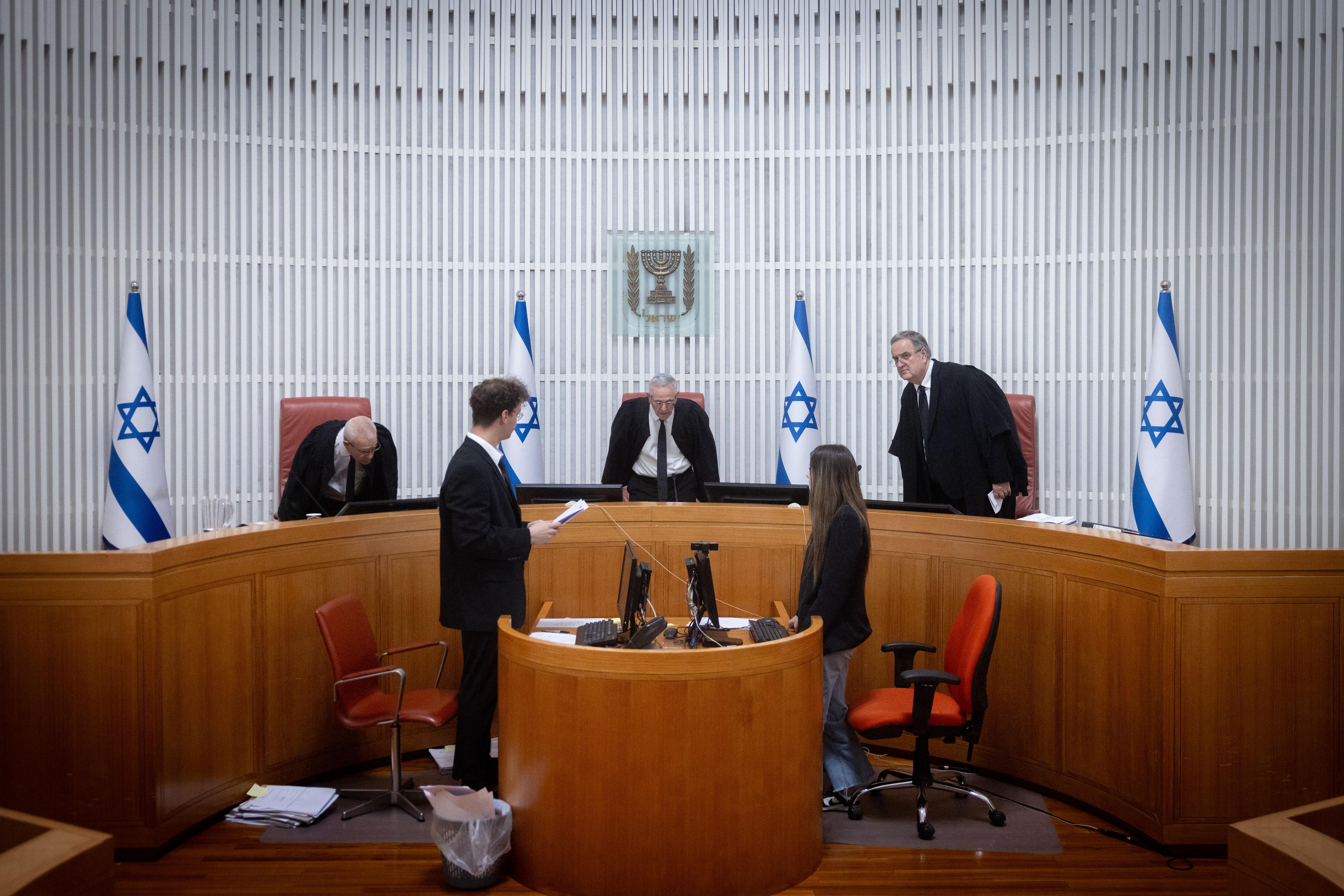Reversing the Gallant dismissal
Does the Supreme Court have the authority to overturn Galant's dismissal?
Petitions were urgently submitted to the Supreme Court to stop Gallant's dismissal, arguing that the state of war does not allow for political instability. The Supreme Court could argue that the decision is "extremely unreasonable" and annul the dismissal, exactly what the Knesset tried to prevent by amending the reasonableness standard, which was rejected by the Supreme Court, leaving judicial review unchecked.

Galant's dismissal is stirring the political system. The only effective tool the opposition and its affiliates currently have to overturn a government decision is through the judiciary—namely, a petition to the Supreme Court.
Therefore, the Movement for Quality Government and the "Guardians of Israeli Democracy" filed a petition with the Supreme Court against Prime Minister Netanyahu's decision to dismiss Defense Minister Yoav Galant.
The Supreme Court issued an urgent order requiring the government to submit its response to the petition by tomorrow (Thursday) at 12:00.
The question arises: what authority does the Supreme Court have to annul the dismissal? And on what basis can they annul the Prime Minister's decision?
Here enters the famous ground: the ground of reasonableness.
The reason of reasonableness is one of the grounds that allows the court to exercise judicial review and annul a decision made by the government, the Prime Minister, or a minister.
In other words, if the Supreme Court deems it unreasonable to dismiss Galant for various reasons and that the step taken by the Prime Minister is "unreasonable" in the eyes of the Supreme Court judges, they will be able to overturn the Prime Minister's decision regarding Galant.
Exactly on this point was the major dispute over the judicial reform, where the coalition passed the amendment to the Reasonableness Standard Law, which sought to add that the Prime Minister's decisions would not be subject to discussion in the Supreme Court.
And the wording of the amendment: "Anyone who has judicial authority by law, including the Supreme Court sitting as the High Court of Justice, shall not deliberate on the reasonableness of the decision of the government, the Prime Minister, or another minister, and shall not issue an order against any of them."
The Knesset sought to curb the power granted to the court to annul government decisions, intervene in the decisions of the Prime Minister and ministers, and have the final say in the decisions of the executive branch.
The amendment, as you recall, which passed by a majority vote in the Knesset, was struck down by the High Court judges at the beginning of the war and therefore did not come into effect.
Today, the grounds will once again be put to the test: will the High Court judges use the reasonableness standard to overturn Netanyahu's decision? Are the dismissals considered an "extremely unreasonable" decision as Judge Aharon Barak ruled when the request to annul then-Prime Minister Ariel Sharon's decision to dismiss two ministers who opposed the disengagement plan came before him?
In 2005, the petition, which was actually filed by Yossi Fox, who today serves as the Secretary of the Government, was rejected, and the ministers were dismissed.
However, Judge Barak opened the door to disqualifying the Prime Minister's decisions and noted: "The Prime Minister's discretion is not unlimited." He is confined to those situations of extreme improbability. "If the Prime Minister's decision to dismiss a minister from office is extremely unreasonable, it will be an unlawful decision, and the court will exercise its authority for judicial review."
The reasonableness standard did not apply to the people of Gush Katif who sought to stop the "extremely unreasonable" plan, it did not apply to Yair Lapid's unilateral gas agreement, and the right's claim is that it always sides with one party.